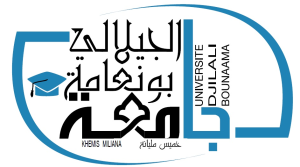لغة إنجليزية
Section outline
-
Professor of the module: Amouri Nassima
The third year of a master degree in Political Science and International Relations
coefficient : 02
Balances: 02
Time: an hour and a half
Introduction:
English language lessons for first-year Master's students specializing in International Relations." This phrase indicates that these lessons are designed for students in their second year of a Master's program in International Relations and are focused on improving their English language skills and enhancing their understanding of concepts related to international relations.
The purpose of international relations :
is to understand, explain, and analyze interactions between countries, as well as the factors that influence these interactions. International relations (IR) is a field of study that explores the relationships between sovereign states, non-state actors, and international organizations. The key purposes of international relations include:
Understanding Global Affairs: International relations aim to comprehend the complex dynamics of global politics.
Promoting Peace and Security: One of the primary goals of international relations is to foster peaceful relations between nations and prevent conflicts.
Economic Cooperation: International relations play a crucial role in fostering economic cooperation and development among nations.
Human Rights and Humanitarian Concerns: International relations address issues related to human rights and humanitarian concerns on a global scale.
Global Governance: International relations involves the study of international organizations and institutions that facilitate cooperation and coordination among countries.
Cultural Exchange: Understanding and respecting different cultures is a fundamental aspect of international relations.
Conflict Resolution: International relations seeks to identify the causes of conflicts and develop strategies for conflict resolution and peacebuilding.
Promoting International Law: International relations emphasizes the importance of adhering to international law.
-
oreign Policy Analysis (FPA) is a field of study that focuses on the systematic analysis of a state's external behavior, decision-making processes, and the factors that influence its interactions with other actors in the international system. Scholars and policymakers use FPA to understand, explain, and predict the actions of states in the realm of international relations.
-
It's important to note that decision-making is often an iterative process, and individuals or organizations may revisit certain stages as they gather more information, encounter unexpected challenges, or reassess their goals. Additionally, decision-making can be influenced by individual cognitive biases, organizational culture, and external factors. Various decision-making models, such as the rational decision-making model, the intuitive decision-making model, and others, offer different perspectives on how decisions are made.
-
In the scientific method, the terms "hypothesis" and "theory" refer to distinct stages in the development and validation of scientific ideas, in summary, a hypothesis is a specific prediction that can be tested, while a theory is a well-substantiated and comprehensive explanation that has withstood the rigors of scientific investigation. Hypotheses may contribute to the development or refinement of theories as they are tested and validated through experimentation and observation.

-
It's important to note that while a war economy may provide a short-term boost to certain sectors, it often comes at the expense of long-term economic stability and can have profound social and humanitarian implications. After a conflict, nations often face the challenge of rebuilding their economies and societies.

